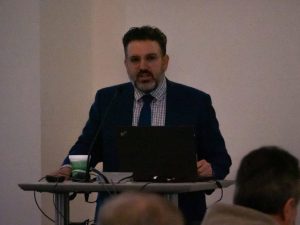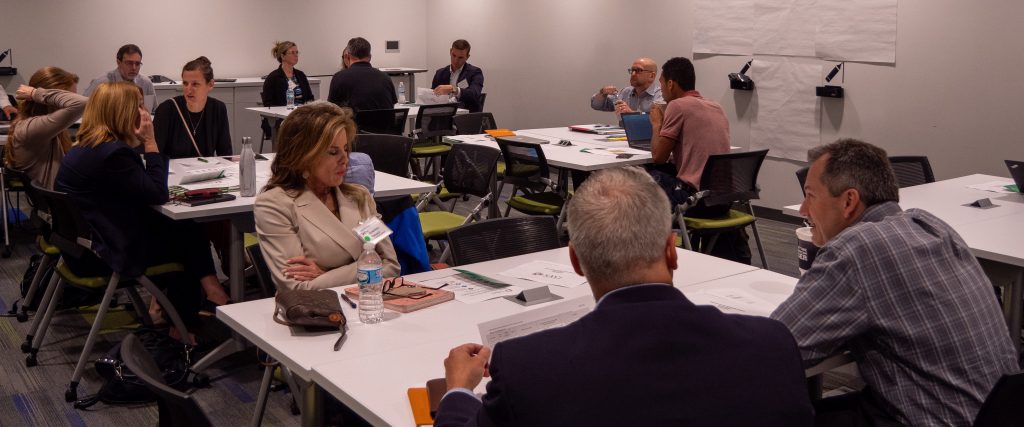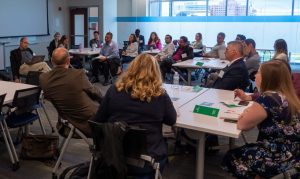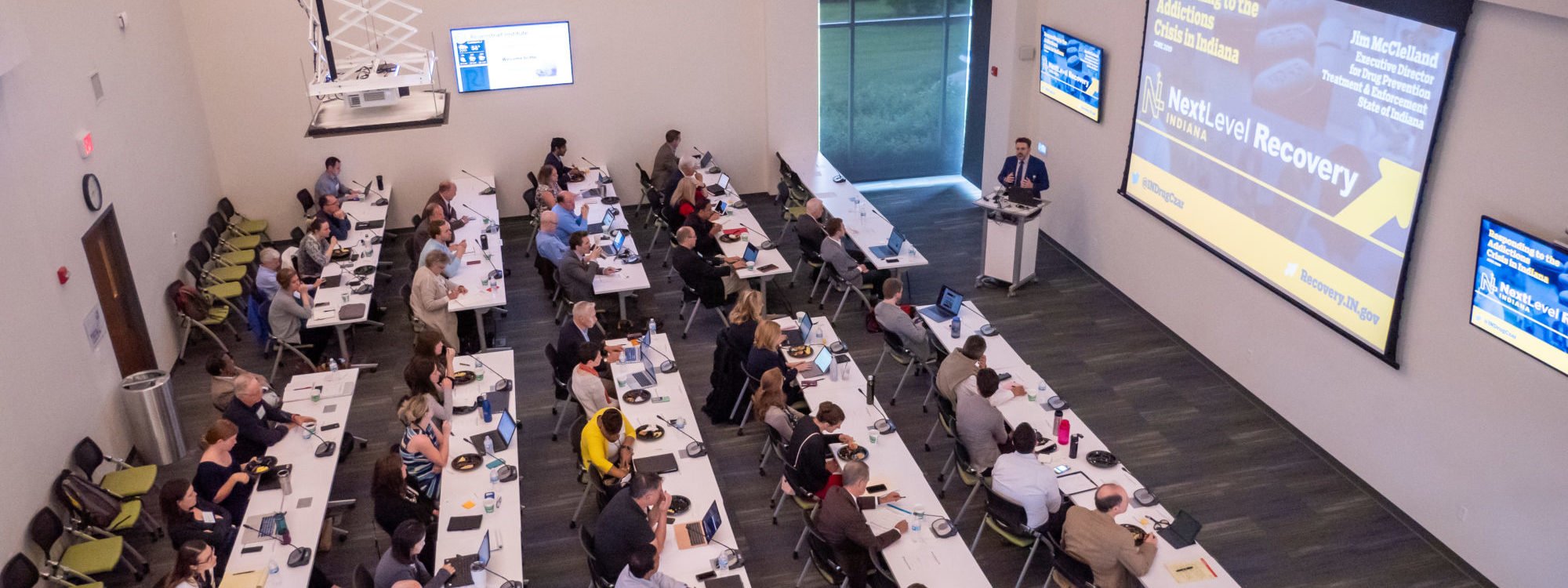Nearly 100 people gathered at Regenstrief Institute to swap ideas and discuss how to put data to use to solve the growing opioid crisis. Regenstrief leaders also announced a pilot grant program, soliciting ideas to link and utilize the data available through the Indiana Addiction Data Commons (IADC).
The event, called the Opioid Collaboratory, organized by Chris Harle, PhD, M.S., a Regenstrief research scientist, and IADC Program Manager Dan Hood, MPH, included researchers, healthcare providers, health systems leaders, state health leaders and more. In addition to his affiliation with Regenstrief, Dr. Harle is on faculty at Indiana University Richard M. Fairbanks School of Public Health and the IU School of Medicine.

Regenstrief President and CEO Peter Embí, M.D., M.S., kicked off the meeting, extolling the benefits of partnerships and collaborations to identify solutions to the opioid crisis. He spoke about the importance of bringing datasets together and using them in applied research efforts. His goal is to use the information to rapidly advance research and implement solutions that have impactful results.
Jim McClelland, the executive director for drug prevention, treatment, and enforcement for the State of Indiana also addressed the group. He presented the latest information on Indiana’s efforts to curb the crisis and save the lives of Hoosiers. McClelland spoke about the need for holistic strategies to combat the addiction crisis and the necessity of increasing emphasis on social determinants of health.

Opioid collaboratory participants also got the chance to learn about the specific data available to them through the IADC. The IADC is a collaboration among Regenstrief, the Polis Center, the State Management Performance Hub (MPH) and other organizations, funded by the Indiana University Addictions Grand Challenge. The data commons combines clinical data with information on social determinants of health, such as education and nutrition, offering a framework to expand opioid-related research.
The conference attendees then broke into small groups, where they discussed possible applications of the available data. Ideas included determining risk factors for the stages of opioid use disorder, barriers to successfully completing treatment and the role of mental health. Another suggestion involved using Regenstrief’s nDepth tool to comb through unstructured data, the doctors’ notes in health records, to uncover data that might not be available elsewhere.

 “These small group discussions really led to some great ideas for how to use this data,” said Hood. “Everyone here has different perspectives on the crisis and what data is useful. Bringing all these perspectives together helps us look with fresh eyes at the problem and its possible solutions.”
“These small group discussions really led to some great ideas for how to use this data,” said Hood. “Everyone here has different perspectives on the crisis and what data is useful. Bringing all these perspectives together helps us look with fresh eyes at the problem and its possible solutions.”
The IADC team will use these recommendations to inform its work going forward.
Funding opportunity to utilize IADC
Regenstrief is offering initial funding opportunities for researchers to help unlock the potential of the Indiana Addiction Data Commons. The pilot grant program will enable data collection and integration efforts. Proposals must focus on innovative approaches to integrating unique data sources that can be accessed through the data commons. Awardees will be selected based on potential to advance research focused on the addiction crisis, prospective ability to generate extramural funding, and fit of research questions and approach with current Indiana Addiction Data Commons data sets. Additionally, the awardees will have the opportunity to collaborate with subject matter experts to determine the specific data needs to answer their pressing research queries.
This pilot funding is open to any Indiana University researcher, with strong consideration given to junior faculty. The deadline to submit is August 1, 2019.
Click here to apply for the pilot grant.
This is Regenstrief’s second Opioid Collaboratory meeting. The first was held in 2017, just before the creation of the IADC.









